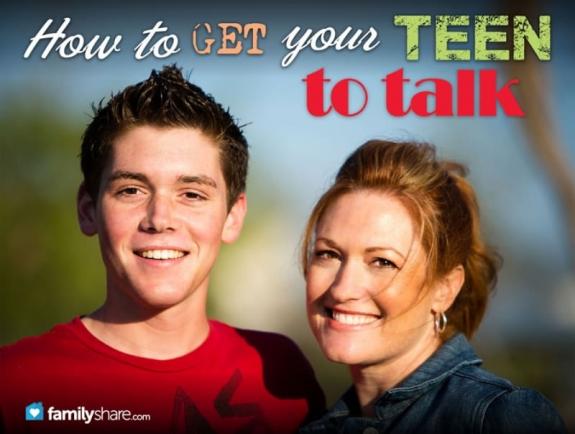
"Yes,"� "no,"� and, "mph,"� is the extent of my teenage son's vocabulary these days. Well, let me correct that. This son, who barely mumbles a response to my daily probing questions about school, will chatter endlessly about domesticated animals and wildlife. His fascination with road kill kills me. He is a paradox - he is a teenage boy.
One night as I was driving along a country road, we noticed a skunk hustling across the street in front of our car. The poor creature had a limp. Without a word, my son flung open his car door and shot across the field to chase down the skunk. He was chasing a SKUNK.
I love it that my kid has meaningful hobbies. He enjoys opening up to me about them and sharing his knowledge. Question is, how do I get him to open up about himself? I feel like I understand more about red-tailed hawks than I do about his innermost feelings.
Another teenage son is the polar opposite. He'll share his deepest concerns and confidences with me without any prodding whatsoever. I sometimes learn more than I want to know. He has no qualms about opening up about girls, school, sports, his life's goals, his changing body, what he was doing at 11:15 last night and what he ate for breakfast.
I'm pleased that this son speaks so candidly about himself - I believe it's really healthy. His frankness with me probably gives him an added sense of security, and it makes me feel good that he trusts me with his personal concerns.
Even when they come from the same family, teens can be bewilderingly different. They may share similar experiences, but what they express and how is filtered through their individual personalities.
How can we as parents really understand our teens when they're so good at concealing their feelings? How can we help them when we don't know what they really need?
Prod, but don't push
If it's obvious that your teen is preoccupied or distraught, let her know that you're available to listen. Don't tackle her to the floor with questions, but do attempt to casually draw her out. "I'm going to sit and read if you want to come and talk later,"� or, "I just had the most awkward conversation with the neighbor; has anything like that ever happened to you?"�
Ask general questions
Kids usually like to rank and evaluate. It helps them to process their thoughts and gives them a chance to express opinions and air grievances. "What do you like best about your best friend? What do you like least?"� Asking a similar question about school or a particular day works well, too, and can really aid communication.
Take what you can get
I've realized that if all my son wants to discuss with me is wildlife-related, I'll happily take that. First, it's terrific that he has a healthy passion. Second, at least he's talking to me about something. As he shares his knowledge with me, I watch his cheeks flush with pleasure and I realize how lucky I am. At this stage, I'll take what I can get.
Maybe your daughter is close-lipped about her boyfriend, but she'll chat about her enthusiasm for soccer or the latest boy band. Perhaps your son loves to cook and play video games, and that's what he chooses to discuss. We can show our kids that we're there for them and that we're good listening ears no matter the topic.
If your teen wants to open up, drop everything
On the rare occasion that my son does approach me to discuss his feelings or a legitimate, non-animal related concern, I drop everything. Dinner on the stove, that really good part in my book or my favorite show go straight out the window. A friend issue or concern over a girl? I want to dance a jig and tackle him to the floor for details, but I keep my cool. I understand that I shouldn't interrupt or get teary-eyed, mama bearish or otherwise emotional or he could bolt.
I embrace those rare conversations when, at his most vulnerable, my son hesitantly offers me a peek into his heart. I am reassured that he has a tender heart with all the normal feelings and emotions, and I feel incredibly grateful that he is my son. Skunk obsession and all.

